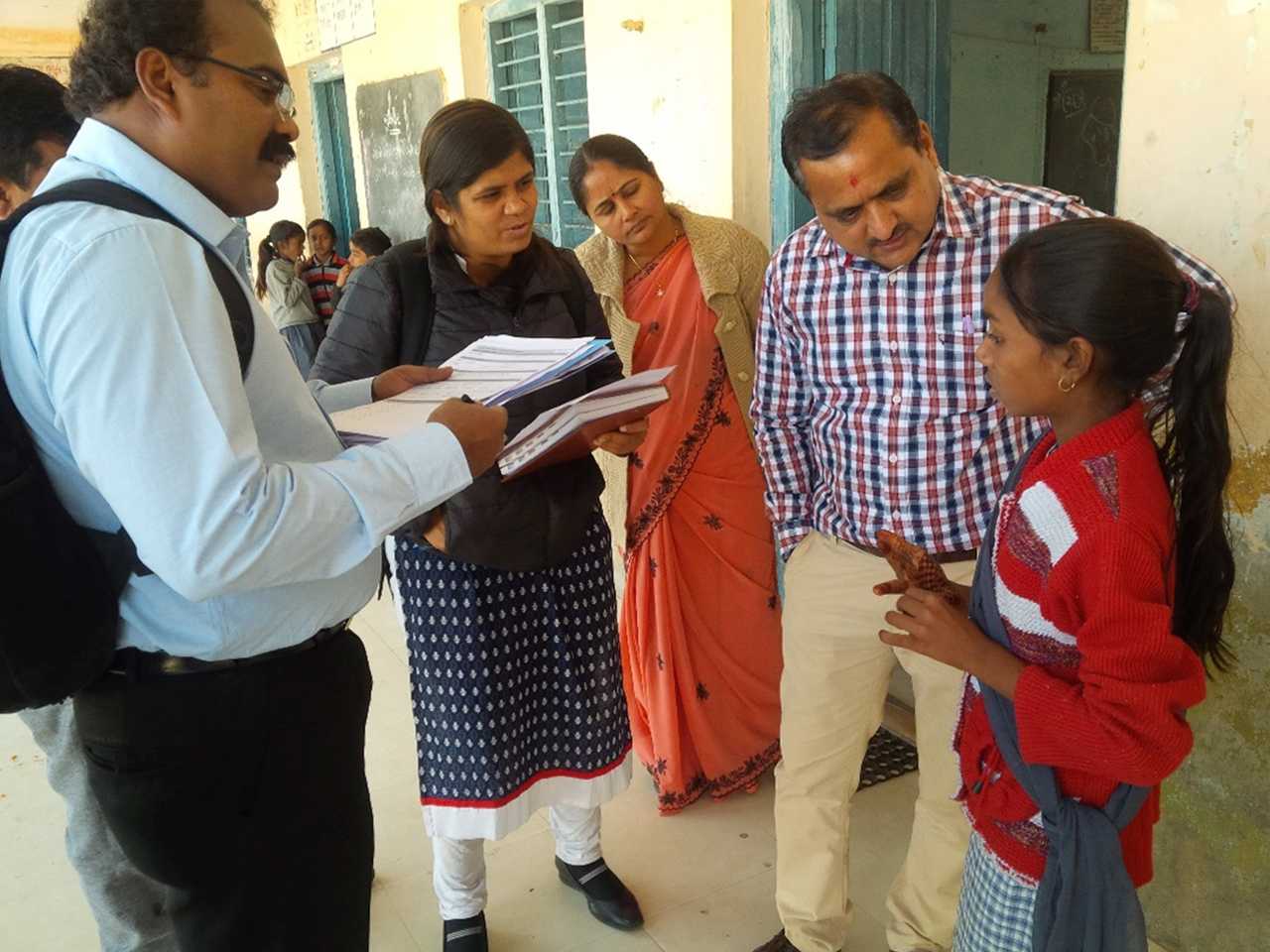India: Labs Rise to the Challenge
The key to cracking foodborne outbreaks is testing sick people. Accurate laboratory testing allows public health experts to link people with similar results and discover more about outbreaks.
People think of their wedding day as the happiest day of their lives. In India, weddings often include several days of festivities with friends and family. Symptoms like “abdominal pain,” and “vomiting” are unwanted guests, but they crashed one wedding party in Gujarat State.

An India EIS officer helps the district rapid response team take interviews after a food poisoning outbreak in Gujarat. Photo courtesy of Mayank Dwivedi.
Fortunately, India is committed to strengthening outbreak response and surveillance for acute diarrheal and foodborne diseases. Within 24 hours, four investigators were deployed to conduct an investigation to find the cause of the wedding outbreak. The disease detectives surveyed households to track down nearly 400 wedding guests from four villages to identify potential cases and get more information about foods the sick guests ate. By the end of the outbreak, ninety-two people reported symptoms and eight were hospitalized.
A deadly dessert
Solving foodborne outbreaks is not easy. When trying to pinpoint the cause, collecting clinical samples from patients is the most effective way to get to the root of the problem. Testing food or water doesn’t always reveal which pathogen (germ) is causing the illness -- more than one pathogen may be present in the source. When you test people directly, it’s easier to discover what is making them sick.
The team in India traced the likely source of the wedding outbreak to basundi, a dessert made of condensed milk topped with dry fruit and served cold. Investigators discovered there was a 10-hour power outage two days before the wedding that affected the dairy where the milk was purchased.
Looking to lab results
Fast and reliable lab results are key to solving outbreaks like this one. Accurate testing allows public health experts to link people with similar laboratory results and discover more about outbreaks.
This is why India has taken innovative steps to improve the ability of labs and hospitals to detect outbreaks of acute diarrheal disease and foodborne illness. Training is at the core of this work. Epidemiologists, microbiologists, lab technicians, and healthcare staff have been trained and mentored on procedures for stool specimen collection, transport, laboratory testing, and reporting.
In just two years, more than 30 outbreaks have been detected and reported in four pilot districts across Tamil Nadu and Gujarat; 2000 samples have been properly collected, transported, and tested. Overall, clinical specimens were tested in 75% of those outbreaks, bringing results on par with some of the best standards in the world.
About This Story
This story illustrates India’s commitment to meeting specific targets of the Global Health Security Agenda:
- Laboratory: A nationwide laboratory system capable of safely and accurately detecting and characterizing pathogens causing epidemic disease
- Workforce Development: One trained field epidemiologist per 200,000 population
In India, acute diarrheal diseases and food poisoning routinely account for over 40% of infectious disease outbreaks. With elements of the Global Health Security Agenda in place, India is increasing its ability to respond. Partnerships are key. India’s Global Disease Detection Center coordinates this pilot roject with India’s National Centre for Disease Control’s Integrated Disease Surveillance, CDC’s Division of Foodborne, Waterborne, and Environmental Disease, and the Global Foodborne Infections Network.
- Page last reviewed: February 9, 2016
- Page last updated: February 9, 2016
- Content source:
Global Health
Notice: Linking to a non-federal site does not constitute an endorsement by HHS, CDC or any of its employees of the sponsors or the information and products presented on the site.


 ShareCompartir
ShareCompartir